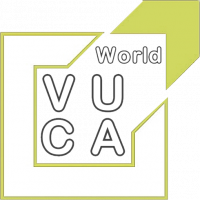This Is Why 1 Tool No Longer Works
Article by Tim Nash
Your team is separated by country, culture and language. It’s also a mix of generations.
Nevertheless, you need to do something ASAP to increase trust and improve teamwork. You’re thinking of using a psychometric tool like Insights or MBTI to develop the team. However, all these psychometric tools stress that you shouldn’t consider cultural background if you want accurate results… Wait – you can’t ignore the cultural backgrounds of my team members! Recognizing and accepting the differences, including cultural ones, is key for building trust and moving forward.
However, to build trust and improve collaboration in a team (any team!), no one tool or method is enough – especially one developed in the last century.
Newsflash: You’re going to need more than a one-size-fits-all approach to develop a diverse team like yours – especially in the post-pandemic work landscape!
If you’d like to develop your team and the individual team members, here are 3 reasons to get to know Relational Organizational Gestalt (ROG).
1. It’s agile, not fixed.
The fields of People Development and Change are growing increasingly complex. By the day. According to Relational Change co-founder Marie-Anne Chidiac, a new approach is needed to “tackle the uncertainty and uniqueness of emergent change situations”. ROG is one such approach. Furthermore, one-size-fits-all methodologies no longer work to manage complex change. Or complex emotions.
2. It’s supportive, not manipulative.
Guided by The Paradoxical Theory of Change, it aims to supports others to become “who they already are by dropping futile efforts to become who they aren’t”. Moreover, Gestalt treats “human complexity as an asset to be harnessed.” No manipulation, no resistance.
3. It’s holistic, not fragmented.
Influenced by Gestalt theory and practice, it incorporates relevant principles from philosophy (Dialogue) and Organization Development (Systems Theory).
Above all, it’s anchored in a firm understanding of healthy human interaction with a clear focus on our interconnectedness.
So When Do People Change?
Growth and development involves change – at the individual, team and organizational level.
After 20+ years working as a development coach, trainer and facilitator, I’ve made the conclusion that people change if and when they want to. Not their boss. Not their coach. Not their partner.
Original article: pathtopeakperformance.org
 VUCA-WORLD
VUCA-WORLD